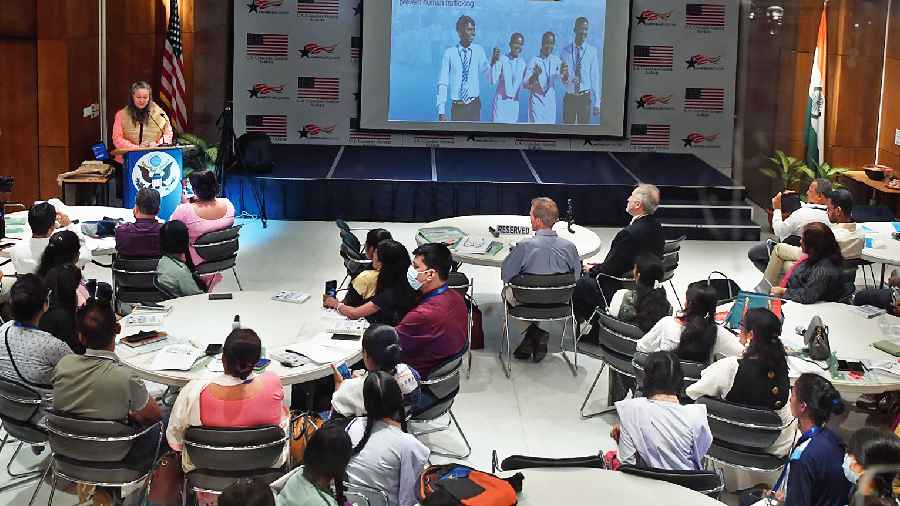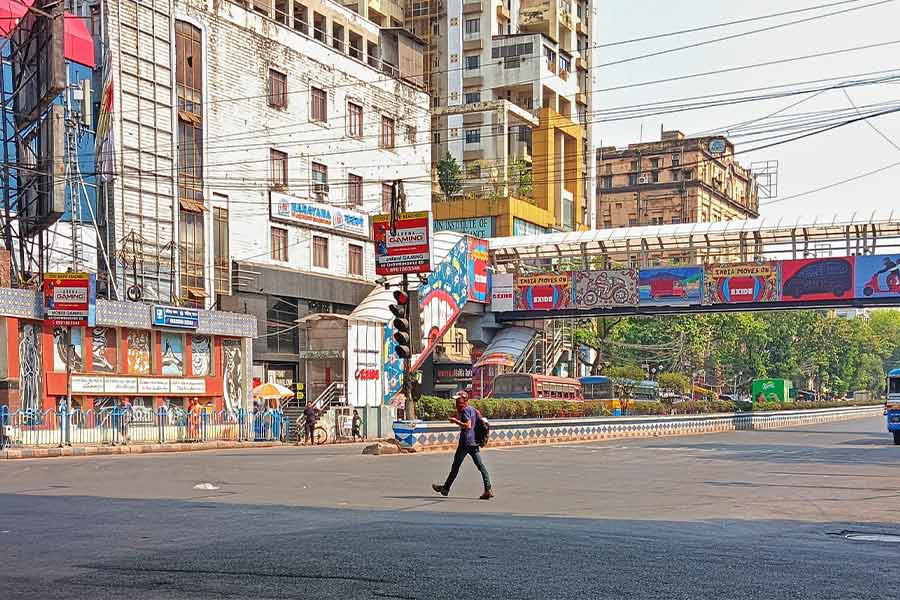A school at the southernmost tip of West Bengal had 1,280 students in March 2020, just before the nationwide Covid curbs were imposed.
When offline classes finally resumed in February this year, the number was 1,050.
A section of the dropouts may have fallen prey to child marriage, said a man who works at the school.
Saral Kumar Das, a clerk at the higher-secondary school on the edge of South 24-Parganas, was a participant in the Anti-Trafficking in Persons Conclave, hosted at the American Center by the US consulate general, Kolkata, and Shakti Vahini, a Delhi-based NGO, on Friday.
Das’s home is not far from where the Hooghly meets the Bay of Bengal. Every year, some portion of the land is gobbled up by the rising sea level.
The invasion of brackish water destroys farmlands on a regular basis.
“Most of the students come from extremely poor families. The pandemic came as a killer blow for them. In the past couple of years, our school has had a dropout rate of around 20 per cent. People are bothered about the next meal, not children’s education,” said Das.
School dropouts often lead to child marriage, which can be the stepping stone to trafficking, activists have repeatedly said.
Participants in the conclave comprised students, teachers, trafficking survivors, child protection committee members, panchayat representatives, members of non-profits and government representatives.
The conclave had been launched in January 2020 as a series of anti-trafficking workshops that shared Bengal’s successful, police-led and school-based Swayam Siddha model with key stakeholders in Assam, Bihar and Jharkhand.
Bengal’s Swayam Siddha scheme started in 2016 to curb trafficking and child marriages. Central to the scheme is peer group awareness. Girls and boys in schools and colleges are asked to report missing friends and possible minor marriages. They are educated in child rights and the unacceptability of violence, abuse, child labour, trafficking and early marriage.
“This (Swayam Siddha) model is successful because it ensures participation of communities and police. Leads provided by communities ensured several cases of trafficking could be prevented during transit in the pandemic,” said Rishi Kant, co-founder, Shakti Vahini.
“Human trafficking cannot be solved by one country or by a single entity. Governments, NGOs, police, the judiciary, companies and many others must all work together,” US consul general Melinda Pavek said.






